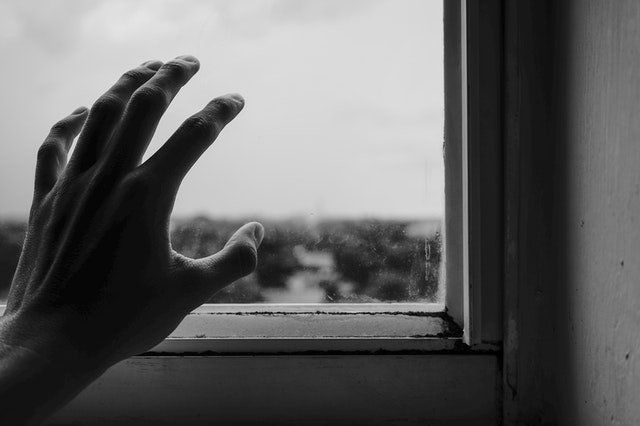Why Having Another Type of OCD Wouldn’t Be Easier (Part 3)
Almost everyone with OCD thinks it would be easier to deal with another type of OCD. This post focuses on the two reasons it wouldn’t be easier to have another type of OCD. It also covers the key to successfully mastering scary, unwanted thoughts and feelings that come with OCD.
OCD Symptoms Are Hard to Deal With
In Chapter 1 of “A Series of OCD Events,” I talked about people’s fear that their OCD thoughts mean they’re a bad person or that what the OCD says is real and will come true. These fears are how the OCD keeps people trapped for years or even decades.
In Chapter 2 of “A Series of OCD Events,” we covered the most common OCD symptoms as well as symptoms that people don’t talk about because they cause shame. People seek treatment when their scary thoughts and feelings are relentless and aren’t relieved by any rituals.
Once people are in treatment, they slowly learn to tolerate the presence of these scary thoughts. Initially, this seems completely impossible and ridiculous. Who in their right mind would want these awful thoughts to stick around?
It takes a while for people to realize that fighting the thoughts, rationalizing, seeking reassurance, and confessing aren’t good long-term strategies. They may get 5 minutes of peace, but the OCD will come right back.
That’s why treatment has to be slow and steady. The person with OCD has to learn a whole new way to think about and respond to their OCD.
At some point, almost all of my patients struggling with OCD say, “I wish I had someone else’s OCD. It would be so much easier to deal with. I wouldn’t care about whatever they’re obsessing about, and I’d be done with treatment by now.”
This is so not true. I’ll go into the two main reasons why in a little bit. First, we need to understand the main types of OCD.

The Main Types of OCD
There are eight main categories of OCD. That’s it. Just eight.
However, OCD can show up in millions of ways because it builds on what matters to you.
Something that matters to me may not matter to you. As a result, we can have the same type of OCD but have completely different obsessions and rituals.
Just because you have OCD doesn’t mean you’re going to worry about everything, all the time. If it’s not something your OCD can pick at, it won’t land on your OCD radar.
Finally, you can have OCD but worry about something in your life in a non-OCD way. For example, you can worry about your job without having obsessions and rituals about it.
The main kinds of OCD are:
- Contamination: Fear of getting self or others sick. This can take many forms. It can be fear of spreading germs, chemicals, or bodily fluids in an otherwise clean and safe space. It can also be fear of contracting illnesses from people, animals, insects, air particles, chemicals, or different objects. When people hoard due to OCD, the cause is usually fear of contamination.
- Harming others by accident: Fear of causing harm, usually through carelessness. A common example is accidentally hitting someone with your car and not realizing it.
- Harming others on purpose: Fear of hurting others physically and/or emotionally. Common examples include making someone sad or fear of committing a violent crime.
- Sexual Obsessions: Thoughts focused on having sex with family members, authority figures, religious leaders, and animals as well as committing violent sexual crimes.
- Sexual Orientation Obsession: This type includes fears about same-sex sexual activities, vivid sexual thoughts about members of the same sex, and fears about sexual orientation. People with these obsessions identify as heterosexual and are only attracted to members of the opposite sex. They aren’t struggling with their identify or sexual preferences. This OCD is typically seen in people who identify as heterosexual. It’s rarely seen in people who identify as part of the LGBTQ community.
- Pedophilia Obsessions: Thoughts focused on being physically attracted to and/or wanting to have sex with minors. It’s important to emphasize that the person isn’t sexually attracted to or turned on by children. They don’t want to pursue a sexual relationship with a child. Instead, they feel disgust, anger, and fear in response to the thoughts. They’ll do everything possible to ensure they aren’t a danger to children.
- Religious Obsessions (also called Scrupulosity): These are thoughts about religiously blasphemous material, committing specific sins, not following religious rules fully and properly, and not being pure enough in mind or body. It’s common to see someone overly focus on some rules while not caring about others.
- Symmetry, Exactness, Just Right: These thoughts and fears have a perfectionist quality to them. The identified object must look, feel, and/or be arranged a certain way. Anxiety increases if a certain standard can’t be met. For example, letters in a sentence have to be the same size and sit in just right on the line or everything must be erased. In other cases, a body part has to feel like it’s in the right place. For example, someone may adjust their head, neck, or jaw over and over to get it to feel a certain way. They don’t have a medical condition. They’re just focused on getting it to feel a certain way.
Having Another Type of OCD Wouldn’t Be Easier
Everyone thinks that if they had another type of OCD, life would be easier. They wouldn’t be as scared. As a result, they would be able to blow through treatment without a problem. That’s not true for 2 reasons:
- Usually, people have more than one type of OCD.
You can come to treatment with multiple types of OCD. Most people develop a new kind during treatment. That doesn’t mean you should avoid treatment.
When the OCD senses you no longer care about one train of thought, it has to go after something new to keep you trapped. It’s common and its part of the game OCD plays with you.
If you have multiple types at once, one type may be less scary than the other at a given time. However, they’re still scary and you’re still motivated to do rituals to get rid of the anxiety and prove the thoughts wrong.
- Whatever your OCD is focused on will feel scary and real. That’s how OCD works.
The human brain produces about 60,000 thoughts a day. Most of them are really weird. We’re not aware of most of our thoughts. Our brain has a way of figuring out what matters and deleting the rest.
When you have OCD, your delete button works differently. Your brain holds on to certain categories of weird thoughts.
If your OCD changes focus or adds another category, your brain will get stuck on these thoughts. You’ll feel really anxious because they’ll feel so real. As a result, you’ll do whatever rituals necessary to get rid of the anxiety.
If this wasn’t true, you wouldn’t have OCD.
Focus on Treatment, Not on the Type of OCD
The key to mastering OCD isn’t replacing one kind of obsession with another. Instead, the goal is to not care that the thought is there.
During treatment for OCD, you work toward accepting that your brain spits out scary, unpleasant thoughts and holds on to them. You can live a full life with those thoughts there.
Exposure Response Prevention (ERP) is the gold standard treatment for OCD. The goal of this treatment is to gradually accept that scary thoughts are there and not try to get rid of them. Instead, accept that they’re going to come along for the ride. This is true for every type of OCD.
Imagine the OCD as strep throat, the flu, or some other illness you had that made you feel awful. Aside from taking care of yourself to help your immune system, there was nothing you could do other than let the illness run its course.
When you’re sick, you can’t speed it up or rationalize it away. You don’t like it, but you have to let it be there until it’s done. Conquering OCD involves the same approach.
If you can learn how to have a scary thought but not do anything about it, you’ll be able to deal with any type of OCD you have now or in the future.
Next Steps:
Unfortunately, you can’t choose what your OCD leaches on to. Instead, you have to deal with whatever terrifying or disturbing thoughts are thrown at you.
This is true for every type of OCD. If you have OCD, you’ll be scared by the OCD you have now and any other type that comes along.
That’s why you need to focus on mastering how to respond to OCD thoughts. The type of OCD thoughts doesn’t matter.
The same techniques are used to manage all types of OCD thoughts. Really, the same exact treatment and strategies.
At the end of the day, all types of OCD follow the same formula:
- Scary, intrusive, and unwanted thoughts cause significant anxiety.
- You’ll do any kind of ritual in order to get rid of the anxiety.
Having OCD is extremely hard. Explaining it to someone else is even harder. Download the done-for-you script that you can print out and hand anyone in your life. I’ve also included a script you can customize to describe your unique struggles.
When you’re ready to conquer the OCD, give us a call.
You don’t need to feel embarrassed.
We’ve heard all kinds of OCD thoughts.
We get it and would like to get you on the path to success.
Please contact us to set up an appointment.
We can help give you information, a map for next steps, and hope that you can have the life you want.
Wishing you the best,
Dr. Levy
Director
Dr. Ronit Levy is a clinical psychologist and director of Bucks County Anxiety Center in Newtown, PA. She specializes in treating teens and adults struggling with anxiety due to Anxiety Disorders, OCD, chronic illness, and life events. Dr. Levy trains and supervises other therapists and presents on mental health in the community.
Anxiety & OCD Blog Latest Posts
About Us
The therapists who practice at Bucks County Anxiety Center work with teens (ages 14 and up) and adults struggling with anxiety and OCD.
All Rights Reserved | Bucks County Anxiety Center








